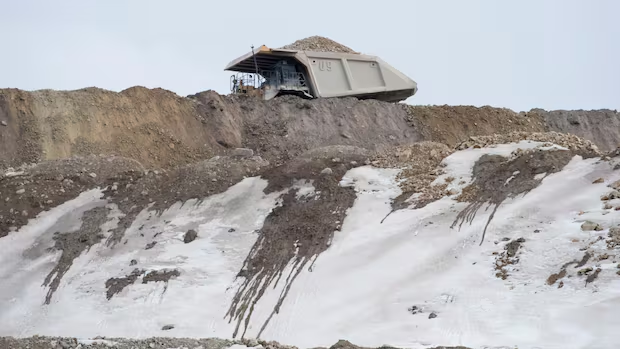
Economics, not politics, main reason mines fail to materialize in B.C., researcher suggests
CBC
The mining industry is applauding the British Columbia government's decision to fast-track permits for several projects amid the ongoing U.S. tariff threat, but research suggests economic factors have been behind long delays for many other proposals.
Simon Fraser University associate professor Rosemary Collard says research shows that regulatory fast-tracking of mining projects is no guarantee that they will all materialize.
She's the co-lead author of a recent study of 27 B.C. mining projects granted environmental assessment certificates since 1995 and projected to open by 2022, showing that most failed to open on time.
The study says that of the 20 that failed to do so, regulation was a factor in only three, with economic factors and viability instead being the most common cause.
The B.C. government on Tuesday released a list of 18 critical mineral and energy projects, including four mines, that it said would be expedited to diversify the economy during what Premier David Eby called the "on-and-off tariff threats" from the United States.
Tim McEwan, a senior vice-president at the Mining Association of British Columbia, says in a statement that the association is pleased the government recognizes the need to speed up permitting and calls the initial list released earlier this week as "a good first step."
McEwan said 17 critical mineral projects are currently "on the books" in B.C., and several are poised to enter permitting processes within the year.
He said it was imperative that the provincial government work to expedite approvals for other critical mineral, precious metal and steelmaking opportunities.
About half of the mines in Collard's study, which was published in December, never opened.
Collard, a geographer, said there's a big question mark around whether certainty can be delivered by doubling down on resource extraction in sectors like mining, which she calls "notoriously volatile and uncertain" with swinging commodity prices.
"One of the main surprising things about the study that we did that's relevant to this fast-tracking, I think, is that almost half of the mines that were approved through environmental assessment in B.C. since 1995 haven't been built," Collard said.
"So, there are 12 fully approved, permitted mines in the province that are sitting waiting for the right economic conditions to be built."
She said another main finding of the study is that mines that did become operational "have underperformed economically compared to what their forecast said in their environmental assessment."
"When you look back in the past, you see that the track record is of significant underperformance of mining projects on employment and tax revenue," she said.

N.S. Opposition wants dismissal provisions for civil servants halted until PCs can explain rationale
The minister in charge of Nova Scotia's civil service said Tuesday a bill that would allow the province to get rid of non-union government employees without cause will proceed unchanged.












